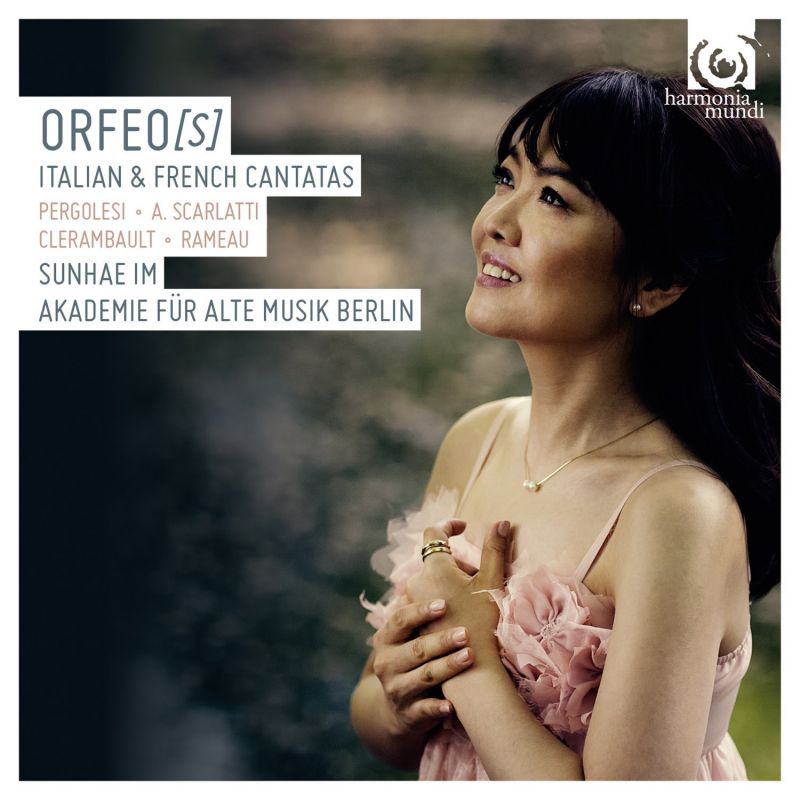Sunhae Im: Orfeo(s)
View record and artist detailsRecord and Artist Details
Composer or Director: Jean-Philippe Rameau, Giovanni Pergolesi, Louis-Nicolas Clérambault, (Pietro) Alessandro (Gaspare) Scarlatti
Genre:
Vocal
Label: Harmonia Mundi
Magazine Review Date: 05/2015
Media Format: CD or Download
Media Runtime: 69
Mastering:
DDD
Catalogue Number: HMC90 2189

Tracks:
| Composition | Artist Credit |
|---|---|
| Orfeo |
Giovanni Pergolesi, Composer
Akademie für Alte Musik Berlin Giovanni Pergolesi, Composer Sunhae Im, Soprano |
| Orphée |
Louis-Nicolas Clérambault, Composer
Akademie für Alte Musik Berlin Louis-Nicolas Clérambault, Composer Sunhae Im, Soprano |
| L'Orfeo |
(Pietro) Alessandro (Gaspare) Scarlatti, Composer
(Pietro) Alessandro (Gaspare) Scarlatti, Composer Akademie für Alte Musik Berlin Sunhae Im, Soprano |
Author: Richard Lawrence
The other three cantatas make use of a narrator to complement Orpheus’s direct speech. In Clérambault’s Orphée, the ‘faithful echoes of the woods’ are represented by the soft flute of Christoph Huntgeburth. When Orpheus refers to himself as ‘the son of the God of Day’, the accompaniment is light, the bass instruments silent. This air, the third of four, ends with a moving, twofold reprise of the phrase where he begs Pluto to restore Eurydice to him. Scarlatti’s L’Orfeo is significantly different in style from the Pergolesi piece: there’s a fierce, dotted introduction from the instruments, and the first aria includes suspensions and, not unexpectedly, Neapolitan sixth cadences. Sunhae Im sings ‘Sordo il tronco’, the central aria, in a beautiful mezza voce. Rameau’s Orphée brings back the flute, and also Bernhard Forck’s violin. The playing, mostly one-to-a-part, is exquisite; so is the singing.
Discover the world's largest classical music catalogue with Presto Music.

Gramophone Digital Club
- Digital Edition
- Digital Archive
- Reviews Database
- Full website access
From £8.75 / month
Subscribe
Gramophone Full Club
- Print Edition
- Digital Edition
- Digital Archive
- Reviews Database
- Full website access
From £11.00 / month
Subscribe
If you are a library, university or other organisation that would be interested in an institutional subscription to Gramophone please click here for further information.




